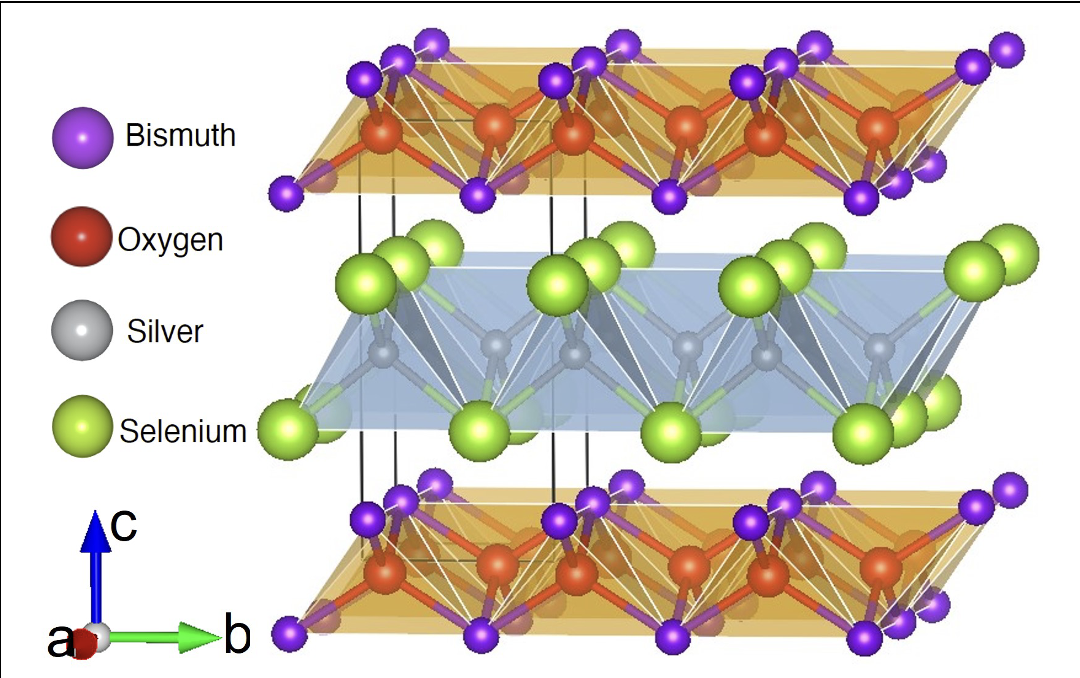 Northwestern University MRSEC IRG-2 has developed an efficient theoretical framework based on high-throughput density functional theory calculations and machine learning methods to accelerate the discovery of heteroanionic materials. In addition, property calculations such as electronic and thermal conductivities have been performed on the discovered candidate materials to explore their potential in thermoelectric applications. For example, in a collaborative effort involving five IRG-2 PIs, a comprehensive study has identified BiAgOSe to be an exceptionally low thermal conductivity material from both theoretical and experimental perspectives. To understand the mechanism behind the low thermal conductivity in BiAgOSe, IRG-2 performed lattice dynamical simulations that revealed exceptionally low sound velocity and high phonon-phonon scattering rate in BiAgOSe.
Northwestern University MRSEC IRG-2 has developed an efficient theoretical framework based on high-throughput density functional theory calculations and machine learning methods to accelerate the discovery of heteroanionic materials. In addition, property calculations such as electronic and thermal conductivities have been performed on the discovered candidate materials to explore their potential in thermoelectric applications. For example, in a collaborative effort involving five IRG-2 PIs, a comprehensive study has identified BiAgOSe to be an exceptionally low thermal conductivity material from both theoretical and experimental perspectives. To understand the mechanism behind the low thermal conductivity in BiAgOSe, IRG-2 performed lattice dynamical simulations that revealed exceptionally low sound velocity and high phonon-phonon scattering rate in BiAgOSe.